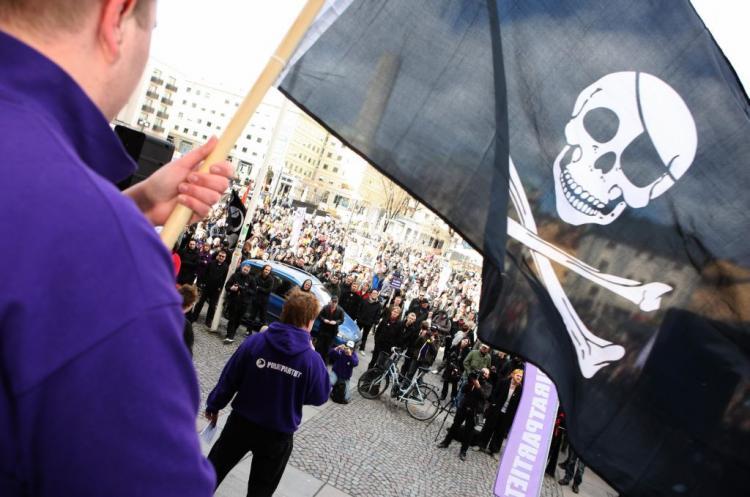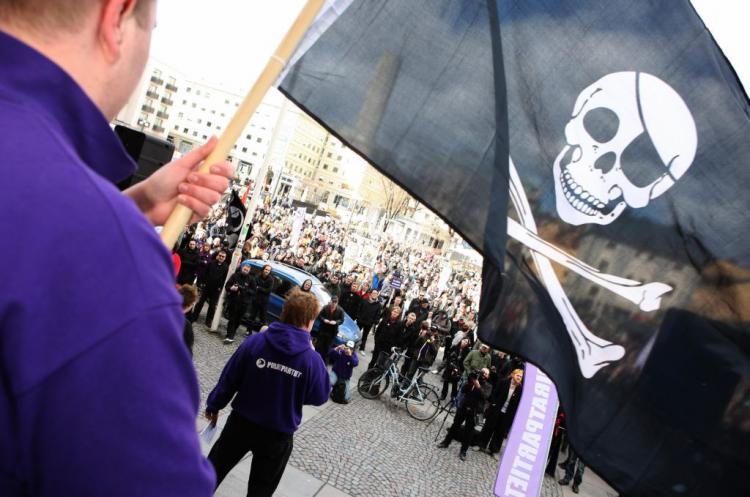Among the success stories is that of “Minecraft,” the legendary game developed by one man that has sold more than a million copies before it has even reached its final release.
Markus Alexej Persson, better known as Notch, is the man behind “Minecraft.” Although he sells each copy of the game for around 15 euros, part of his business model is the word-of-mouth promotion of piracy.
His stance is that if someone pirates “Minecraft” rather than buy it, what he loses is “potential” revenue. “But what if that person likes that game, talks about it to his or her friends, and then I manage to convince three of them to buy the game? I’d make three actual sales instead of blocking out the potentially missed sale of the original person which never cost me any money in the first case,” Notch wrote in his personal blog.
He has, however, taken a method to combat piracy—offering Web-based services that only paying customers can have access to.
“None of these features can be accessed by people with pirated versions of the game, and hopefully they can be features that turn pirates from thieves into potential customers,” Notch writes.
The approach Notch takes of offering Web-only services to coax pirates into buying the full software is becoming more common.
Blizzard, makers of the long-awaited “Starcraft II” video game were able to sell more than 3 million copies in the first month of its release.
Although Blizzard does not encourage piracy, the main lure of “Starcraft II” is its online play that’s only available through its own servers. If pirates want to play with other users online, they need to go out and buy the game.
Daniel Jalkut, founder of Red Sweater Software, and creator of the MarsEdit blogging application, holds the belief that pirates will become customers, which he outlines in his business blog.
Although he states, “The last thing I want to do is legitimize piracy,” he goes on that “A pirating user is better than no user at all,” and brings hard-earned benefits to a product: word-of-mouth marketing, peer-provided support, and market saturation.
He believes that pirates will eventually become customers. He said, “My impression is that theft in general is an immature act,” and that once people mature, “they’re going to need software. The fact that they’ve been using your product illegally for years will probably make it among the first that they legitimately pay for.”
French DJ David Guetta, who topped the charts with his “One Love” album in 2009 has taken the approach a step further.
His album sold more than 15 million singles around the world, yet he states, “I have never been very nervous about online piracy,” Guetta told U.K. media Daily Star.
“Sometimes you have to give away content, even if it isn’t bringing you money,” Guetta said.
Give to Sell
The approach to sell by giving—even if not willingly—isn’t unknown. The benefits were outlined in a Cato Institute report written in 2002 when record companies shut down Napster—a case that heralded the war against peer-to-peer file sharing.
The Cato Institute referred to the “exposure effect,” a bi-product of piracy that it described as “a form of advertising or sampling that could ultimately lead to larger sales of legitimate versions.”
“Users of pirated software, for example, might find themselves wanting the manuals and technical support that would be available only to authorized users. Or, as claimed in the Napster defense, Napster users may just sample songs to get a better idea of which CDs to buy,” states the report.
It adds that the “network effect” could also be a positive side to piracy. “A more recent claim is that copying may benefit copyright holders when network effects are strong,” states the report, adding, “An example of network effects for products prone to piracy might be word processing software that becomes more valuable the more individuals are using the same software.”
Spotify, a European music service, is among the larger examples of this. The service bypasses piracy altogether by allowing users to listen to and share songs by any artist they want for free—legally.
Although the service is still barred from the U.S., it is a hit in Europe with more than 10 million in seven countries, with 500,000 users who have signed on to its paid services that can eliminate ads or let users store as many songs as they want on their devices, Wired magazine reported.
Meanwhile, record sales are rising through most area where the service is available, contrary to the fears of record labels.
Spotify CEO Daniel Ek has a simple philosophy of why this is. “People now consume a lot more music by a bigger diversity of artists,” Wired reported. “And the reason they do that is because they no longer discover music from a radio station. They discover music from their friends.”
While piracy is estimated to cost the U.S. economy $58 billion each year in lost revenue, according to a 2007 study by the Institute for Policy Innovation, there is data that suggests otherwise—particularly with box office sales.
Global box office sales hit an all time high in 2010, reaching $31.8 billion and outdoing the previous year by eight percent. This includes $10.6 billion from the U.S. and Canada, which stayed at the same level as 2009, according to a Feb. 23 Motion Picture Association of America press release. The same phenomenon has taken place year after year.
“Despite a weak economy, shifting business models, and the ongoing impact of digital theft, we had another record year at the global box office driven by growth outside the U.S. and Canada,” said Bob Pisano, President and Interim CEO of the MPAA, in a press release.







